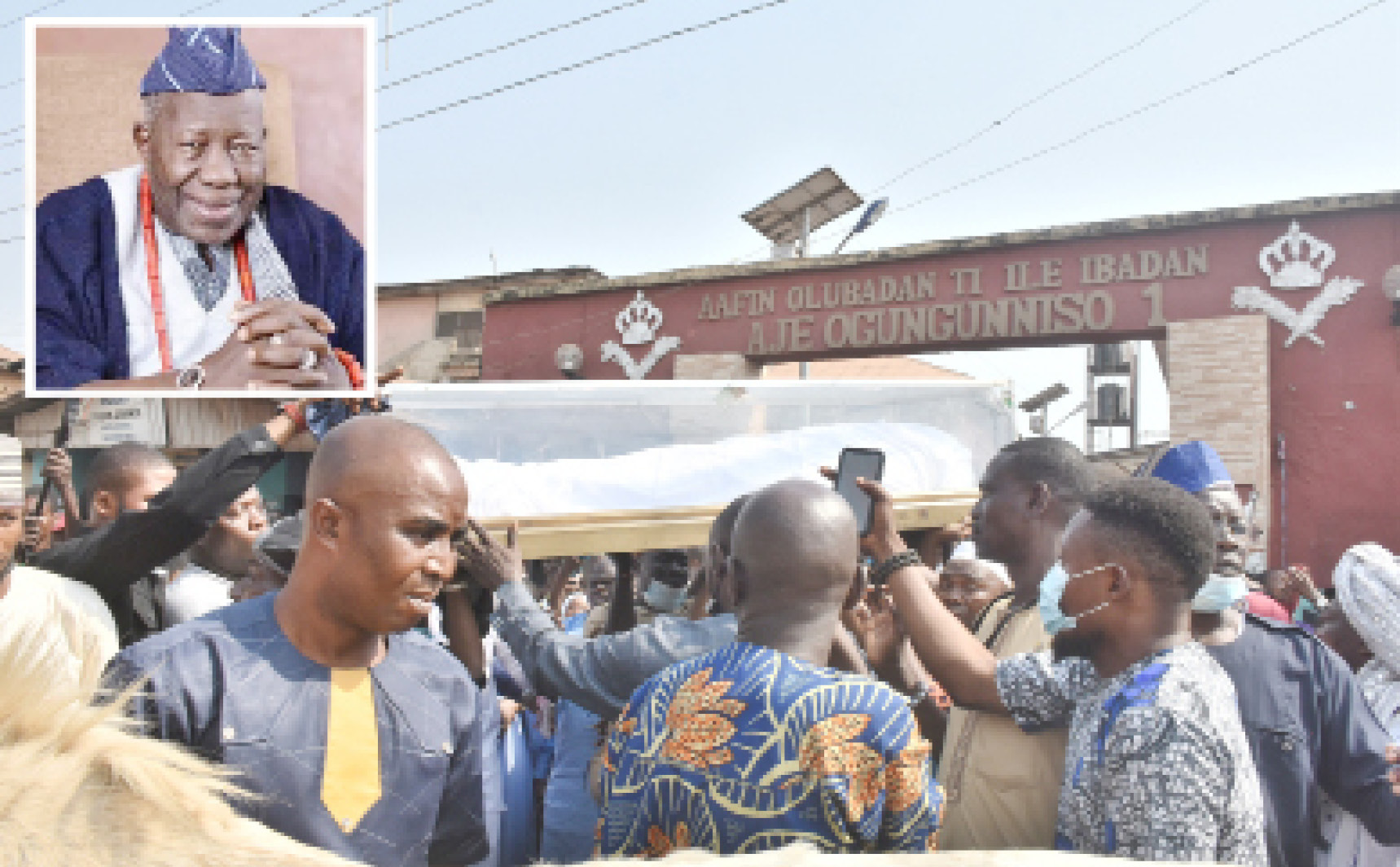A Journey of Resilience and Legacy: Oba Rashidi Adewolu Ladoja’s Path to the Olubadan Throne
In a city steeped in history and tradition, the journey of Oba Rashidi Adewolu Ladoja stands as a testament to perseverance, dedication, and the enduring strength of Ibadan’s chieftaincy system. From his humble beginnings in a remote village to his current position as the 44th Olubadan of Ibadanland, Ladoja’s story is one of remarkable transformation and unwavering commitment.
The Passing of a Monarch and the Rise of a New Leader
On Monday, July 7, 2025, Ibadan, Oyo State, mourned the passing of the 43rd Olubadan of Ibadanland, Oba Owolabi Olakulehin. Just two days earlier, the nonagenarian had celebrated his 90th birthday and was preparing for his first coronation anniversary on July 12. With his transition formally announced, the royal drummers—custodians of Ibadan’s age-old succession ritual—moved their beats to the home of the next man in line. Oba Olakulehin came from the Balogun (military) line, and the crown now shifts to the Egbe Agba (civil) line. At its summit stands Oba Rashidi Adewolu Ladoja, Otun Olubadan and—by tradition—the Olubadan-in-waiting.
From Humble Beginnings to Academic Excellence
Ladoja’s journey began in Gambari, a rural village near Ogbomoso, Oyo State, where he was born on September 25, 1944. His early life was marked by communal abundance rather than wealth. “My mother said the whole village named me,” he recalled, highlighting the Yoruba tradition of celebrating a newborn with yam, a gifted cow, and Qur’anic verses. Despite early brilliance, Ladoja dropped out of Ibadan Boys High School in Form Four due to financial constraints. However, his determination led him to re-enter school a year later, thanks to his father’s modest income and a payment plan that allowed him to return.
His academic excellence secured him a place at Olivet Heights, where he topped the entrance results. This success earned him two regional scholarships—one from the Western Region and another through a chance encounter at the Ministry of Education. It was this opportunity that took him to Belgium, where he studied Chemical Engineering at the University of Liège from 1966 to 1972. Upon returning to Nigeria, he joined Total Nigeria, working in various positions before transitioning into private business in 1985. His ventures spanned shipping, manufacturing, banking, agriculture, and transportation.
Political Ascent and Challenges
Ladoja’s political journey began in 1993 when he was elected to the Senate of Nigeria during the short-lived Nigerian Third Republic. He later became governor of Oyo State in 2003, defeating incumbent Governor Lam Adesina. However, his tenure was marked by political turbulence, culminating in his impeachment in 2006. Despite the setback, the Appeal Court in Ibadan declared the impeachment null and illegal, allowing him to resume office in 2006. Although he failed to secure the PDP nomination for a second term, he continued to play an active role in Nigerian politics, supporting various candidates and parties over the years.
Ascending the Chieftaincy Ladder
Every journey to the Olubadan throne begins with becoming a Mogaji—the head of one’s extended family compound. For Ladoja, this milestone came in the 1980s when he was installed as the Mogaji of the Ladoja family of Arusa Compound, Isale-Osi, Ibadan. This was followed by his promotion to Jagun Olubadan in 1993, marking his formal entry into the chieftaincy hierarchy.
The Olubadan succession is rotated through two lines: the Egbe Agba (civil) and Balogun (military) lines. Ladoja’s path within the Egbe Agba line included a gradual climb through various titles, each carrying greater responsibility within Ibadan’s traditional administration. In 2021, he was elevated to the position of Otun Olubadan, the second-in-command to the Olubadan and the highest-ranking chief on the Egbe Agba line. This placed him next in line to become the Olubadan.
Controversies and Commitment to Tradition
Throughout his journey, Ladoja has faced numerous controversies. In 2017, he openly criticized efforts to tamper with the Ibadan chieftaincy system, standing alone in his opposition to the elevation of multiple obas. He emphasized the importance of maintaining the hierarchical order that allows a Mogaji to one day become Olubadan, calling it one of Ibadan’s most democratic and egalitarian legacies.
When the new law mandating all Ibadan high chiefs to accept obaship before promotion was introduced, Ladoja initially hesitated. However, after pressure from various stakeholders, he publicly declared his readiness to accept the beaded crown, stating, “By the grace of God, I will become Olubadan.”
The Final Step Toward Destiny
With the passing of the late Olubadan, Oba Owolabi Olakulehin, the chieftaincy line advances, bringing Ladoja one step closer to his destiny. Having passed through nearly all 22 steps of the chieftaincy hierarchy, he now awaits the final step to become the Olubadan of Ibadanland.
When asked about his vision if he were to become Olubadan, Ladoja emphasized service over status. “Leadership, to me, has always been about service, not status. If it is the will of God that I become Olubadan, I will serve with all my heart.”
From Jagun Olubadan on October 1, 1993, to becoming Olubadan-in-waiting, 32 years after and nearing 82 years old, Ladoja’s journey reflects not only personal resilience but also the enduring legacy of Ibadan’s chieftaincy system. When eventually crowned, he would bring to the Olubadan stool not only age and wisdom but also experience from the corridors of power and the trenches of tradition. For Ibadan, it would be a crowning not just of a man who rose from the dusty paths of Gambari village—but of a legacy built on excellence, against all odds.







